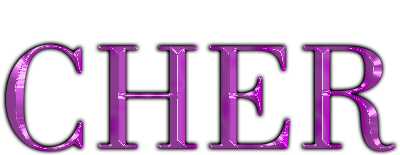Your Rating (Click a star below)
![]()
![]()
![]()
![]()
![]()
![]()
![]()
![]()
![]()
![]()
Total Rating
![]() (0 users)
(0 users)
0
0
3D Track Thumb![]()
Track Description
Available in:
"Sunny" is a song written by Bobby Hebb. It is one of the most covered popular songs, with hundreds of versions released. BMI rates "Sunny" number 25 in its "Top 100 songs of the century."
Hebb wrote the song after November 22, 1963, the day U.S. President John F. Kennedy was assassinated and Hebb's older brother Harold was stabbed to death outside a Nashville nightclub. Hebb was devastated by both events and many critics say that those events inspired the tune. According to Hebb, he wrote the song as an expression of a preference for a "sunny" disposition over a "lousy" disposition. Events influenced Hebb's songwriting, but his melody, crossing over into R&B (#3 on U.S. R&B chart) Country and Pop (#2 on U.S. Pop chart), together with the optimistic lyrics, came from the artist's desire to express that one should always "look at the bright side" - a direct quote from the author. Hebb has said about "Sunny":
"All my intentions were just to think of happier times – basically looking for a brighter day – because times were at a low tide. After I wrote it, I thought "Sunny" just might be a different approach to what Johnny Bragg was talking about in 'Just Walkin' in the Rain.'"
"Sunny" was originally part of an 18-song demo recorded by producer Jerry Ross, also famous for Spanky and Our Gang, Keith's "98.6" and Jay and the Techniques (Hebb was the first artist to cover "Apples, Peaches, Pumpkin Pie", but didn't want to be considered a novelty act and let the song go to Jay Proctor). "Sunny" was first recorded in Japan by Mieko "Miko" Hirota – the "Connie Francis of Japan", where it was said to have done well on the charts. In America it was released by marimbaphonist Dave Pike on Atlantic Records in 1966 on the Jazz for the Jet Set album, well before Philips released Hebb's 45 version produced by Ross and arranged by Joe Renzetti. This information was made public – as well as sounds from the first two versions of "Sunny" – on the BBC's Songlines program in early 2006.
"Sunny" was recorded at Bell Sound Studios in New York City and released as a single in 1966. It met an immediate success, which resulted in Hebb touring in 1966 with The Beatles.
Hebb also had a minor hit on Billboard's R&B chart with a 1975 updated disco reworking of the song, entitled "Sunny '76".

File Hashes
None Found...
Available in:
"Sunny" is a song written by Bobby Hebb. It is one of the most covered popular songs, with hundreds of versions released. BMI rates "Sunny" number 25 in its "Top 100 songs of the century."
Hebb wrote the song after November 22, 1963, the day U.S. President John F. Kennedy was assassinated and Hebb's older brother Harold was stabbed to death outside a Nashville nightclub. Hebb was devastated by both events and many critics say that those events inspired the tune. According to Hebb, he wrote the song as an expression of a preference for a "sunny" disposition over a "lousy" disposition. Events influenced Hebb's songwriting, but his melody, crossing over into R&B (#3 on U.S. R&B chart) Country and Pop (#2 on U.S. Pop chart), together with the optimistic lyrics, came from the artist's desire to express that one should always "look at the bright side" - a direct quote from the author. Hebb has said about "Sunny":
"All my intentions were just to think of happier times – basically looking for a brighter day – because times were at a low tide. After I wrote it, I thought "Sunny" just might be a different approach to what Johnny Bragg was talking about in 'Just Walkin' in the Rain.'"
"Sunny" was originally part of an 18-song demo recorded by producer Jerry Ross, also famous for Spanky and Our Gang, Keith's "98.6" and Jay and the Techniques (Hebb was the first artist to cover "Apples, Peaches, Pumpkin Pie", but didn't want to be considered a novelty act and let the song go to Jay Proctor). "Sunny" was first recorded in Japan by Mieko "Miko" Hirota – the "Connie Francis of Japan", where it was said to have done well on the charts. In America it was released by marimbaphonist Dave Pike on Atlantic Records in 1966 on the Jazz for the Jet Set album, well before Philips released Hebb's 45 version produced by Ross and arranged by Joe Renzetti. This information was made public – as well as sounds from the first two versions of "Sunny" – on the BBC's Songlines program in early 2006.
"Sunny" was recorded at Bell Sound Studios in New York City and released as a single in 1966. It met an immediate success, which resulted in Hebb touring in 1966 with The Beatles.
Hebb also had a minor hit on Billboard's R&B chart with a 1975 updated disco reworking of the song, entitled "Sunny '76".
File Hashes
None Found...
Genre
![]() Pop
Pop
Mood
![]() ---
---
Style
![]() ---
---
Theme
![]() ---
---
Music Video
![]() None
None
Video Director
![]() None
None
Video Production Company
![]() None
None
Music Video Screenshots

 40%
40%